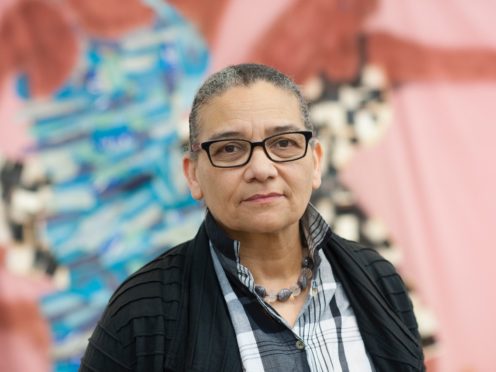Turner Prize-winning artist Lubaina Himid was told “black people don’t make art” before her career success.
In 2017 Himid became the first black woman to win the Turner Prize and the oldest recipient of the award.
She has said these firsts were “bittersweet” but gave people hope that the UK art world was becoming more diverse.
Himid has said that early in her career the art establishment considered the idea of black artists “alien”, and one person told her they did not make art at all.

The artist, born in Zanzibar, spoke to Lauren Laverne on BBC Radio 4’s Desert Island Discs.
She said: “We were not on the television, we were not in the newspapers, unless something drastic and dangerous happened.
“I guess the notion of black people being artists was completely alien to people in the British art world.
“Someone actually said to me ‘black people don’t make art’.”
Himid’s work has concentrated on black identity, and issues of slavery.
In 2017 she won the £25,000 Turner Prize, marking a first for black female artists.

She said: “Being the first black woman was a bit bittersweet, because there are many black women that have been up for it in the recent history of the prize.
“I was happy to win it, but it was bittersweet.
“What people have said to me is that it gave people hope that things were changing.”
Himid hopes these changes can be built upon in order to make the art world, and the rest of society, a fairer place.
She said: “I do think things are changing.
“The important thing is that we need to keep building on these changes. We have to keep vigilant, and just make sure everything is fair.”
The full interview can be heard on BBC Sounds and BBC Radio 4, Sunday at 11.15am.
